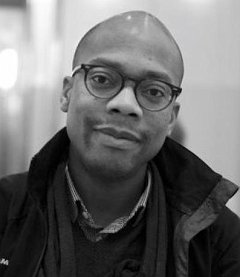Materials can be made to adapt to the way in which they are used, by imbuing them with sensing and computation elements. By making the algorithms that run on these computing elements aware of the physics of the objects in which they are embedded, computation-and-sensing augmented materials could change the way we think about the border between inanimate objects and computing systems. One way to exploit knowledge about the physical world in the programs running on (or in) these objects is to exploit the fact that these programs can often tolerate noise and other deviations from correctness in their input data. This talk will highlight research that builds on these observations.
Phillip Stanley-Marbell is an Assistant Professor in the Department of Engineering at the University of Cambridge where he leads the Physical Computation Lab (http://physcomp.eng.cam.ac.uk). His research focus is on exploiting an understanding of properties of the physical world to make computing systems more efficient. Prior to joining the University of Cambridge, he was a researcher at MIT, from 2014 to 2017. He received his Ph.D. from CMU in 2007, was a postdoc at TU Eindhoven until 2008, and then a permanent Research Staff Member at IBM Research—Zurich (2008-2012). In 2012 he joined Apple where he led the development of a new system component now used across all iOS, watchOS, and macOS platforms. Prior to completing his Ph.D., he held positions at Bell-Labs Research (1995, 1996), Lucent Technologies and Philips (1999), and NEC Research Labs (2005).
Phillip Stanley-Marbell is an Assistant Professor in the Department of Engineering at the University of Cambridge where he leads the Physical Computation Lab (http://physcomp.eng.cam.ac.uk). His research focus is on exploiting an understanding of properties of the physical world to make computing systems more efficient. Prior to joining the University of Cambridge, he was a researcher at MIT, from 2014 to 2017. He received his Ph.D. from CMU in 2007, was a postdoc at TU Eindhoven until 2008, and then a permanent Research Staff Member at IBM Research—Zurich (2008-2012). In 2012 he joined Apple where he led the development of a new system component now used across all iOS, watchOS, and macOS platforms. Prior to completing his Ph.D., he held positions at Bell-Labs Research (1995, 1996), Lucent Technologies and Philips (1999), and NEC Research Labs (2005).
Wed 23 OctDisplayed time zone: Beirut change
14:00 - 15:30 | |||
14:00 45mTalk | Quantum Programming Rebase Jens Palsberg University of California, Los Angeles | ||
14:45 45mTalk | Augmenting Raw Materials with Sensing and Computation Rebase Phillip Stanley-Marbell University of Cambridge | ||
